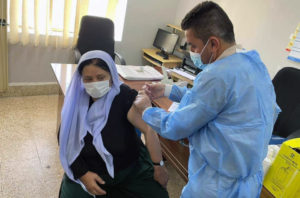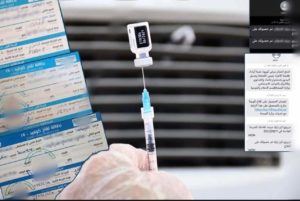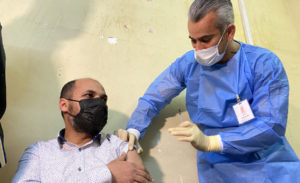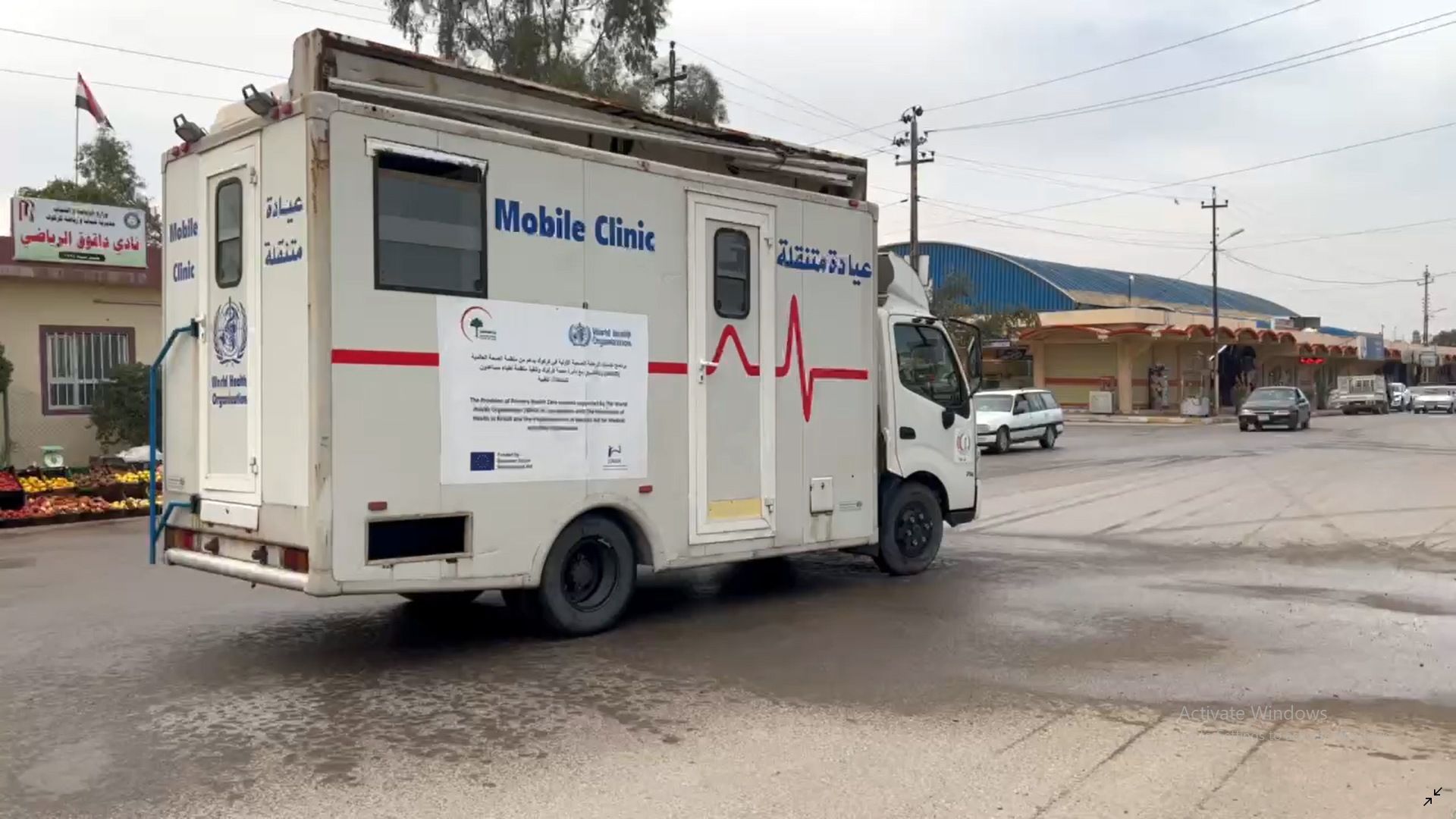
In Daquq, southeast of Kirkuk, there are no excuses left for the residents to refuse to receive the Coronavirus vaccine, especially after the formation of mobile clinics accompanied by medical teams travelling to the most remotely populated areas to enable citizens to obtain the vaccine at home.
The remote villages of Daquq district, including the areas inhabited by the Kaka’i community, are the main beneficiaries of the mobile vaccination teams.
“There are several mobile teams that travel between the villages of the Kaka’i and administer vaccinations to the residents,” says Saad Abbas, a resident of the village of Sayed Walad Al-Kaka’i, south of Daquq.
There is a single health centre for 14 villages in Daquq, including the Kaka’i-inhabited villages, where more than 3,000 locals live, built more than half a century ago.
“The Topzawa Health Center played a good role in encouraging citizens to receive the vaccine, because it made it clear to people the risks of contracting Corona, and as a result, a large number of citizens have so far received the Corona vaccine,” Abbas added.
The population of Daquq district is more than 97,000, yet KirkukNow was not able to obtain a statistic regarding the number of vaccinated people in the district. Rather, there is a statistic available throughout the multi-ethnic Kirkuk province indicating that the number of vaccinated people has reached more than 410,000 out of a population of 1.7 million.
Topzawa Health Center played a good role in encouraging citizens to receive the vaccine.
Hussein Ali.
Hussein Ali, director of the Topzawa Health Center, told KirkukNow, “There is a team specialised in vaccination inside the health centre, and mobile vaccination teams roam constantly in the villages to ensure that everyone has the opportunity to receive the vaccine.”
Three types of Corona vaccine are available in most vaccination centres, which are Pfizer-BioNTech, AstraZeneca and Sinopharm.
Praising the efforts of the health centre, Hussein Ali says that the centre’s staff did everything in their power to educate the locals about the dangers of Coronavirus, noting that the Kirkuk Health Department provided them with the necessary supplies to confront the dangers of Corona.
According to the instructions of the administration of Kirkuk based on the decision of the Iraqi Council of Ministers, employees and visitors of official departments and institutions must take the Corona vaccine, otherwise, Corona examinations must be conducted on a weekly basis.
“Opening a vaccination outlet inside the Topzawa Health Center made the distances closer to us, we will no longer have to go to the district centre to receive the vaccine,” says Parwin Ghaleb Al-Kakai, a resident of the village of Ali Saray.
Parwin is satisfied with facilities provided for receiving the vaccine such prior online registration and long queues.
In addition to their constant movement between villages, mobile vaccination teams visit citizens who wish to take the vaccine at home if they present a convincing argument for not being able to visit the health centre, such as patients of chronic diseases.
70 to 80% of the residents of Daquq villages have received the Corona vaccine.
Nawzad Muhammad.
Nawzad Muhammad, the health sector media official in Daquq, told KirkukNow, “We have several mobile clinics for delivering the vaccine to the remote villages of Daquq, regardless of whether that village is within the borders of the Talabani, Kaka’i or Haftar regions, regardless of ethnicity, religion and doctrine.”
The mobile clinic for vaccination is a cabin attached to a small vehicle, supplied with all vaccination requirements and some first aid supplies, provided in cooperation with the World Health Organization (WHO).
“I can now say that 70 to 80% of the residents of Daquq villages, including the Kaka’i villages, have received the Corona vaccine,” said Muhammad, pointing out that they constantly urge citizens to take the vaccine through health leaflets in markets, public places and in alleys and organising mass gatherings and television promos.
A map showing the location of Ali Saray Kaka’i village, west of the Daquq district centre.
Since the emergence of the Corona epidemic in February 2020, the Kaka’i have been suffering from a number of problems and the lack of public services, including the deterioration of the health sector.
The KirkukNow website has paid special attention to the Kaka’i community during the past four years by publishing reports and follow-ups with the aim of conveying the voice of the Kaka’i component.
In February 2021, KirkukNow printed and published (Kaka’is in the time of Corona), a booklet which included 24 stories in both Arabic and English, addressing the living conditions of Kaka’is of Daquq district amid the pandemic.
The Coalition for Religious Equality and Inclusive Development (CREID) funded the print out and release of the “Kaka’is in the Time of Corona” booklet.
Tania Farouk, a Kaka’i resident in Kirkuk, wishes she lived in the districts and sub-districts because she found out residents there can obtain the vaccine easier.
The Kaka’is live in several regions in Iraq and the Kurdistan Region, and they are widely spread in Kirkuk and Halabja district in Sulaymaniyah northern province, in Qaraqosh district in Nineveh Plain, Erbil, Khanaqin, Mandali and Jalawla in Diyala. According to unofficial statistics, the Kaka’i population throughout Iraq is estimated at 100,000 people.
The Kaka’is are also known as Ahl al-Haqq or Yarsan. They have their own religion, but the Iraqi constitution does not officially recognise their religion. According to the Law on Protection of the Rights of Components in the Kurdistan Region of Iraq, the Kaka’i religion is considered one of the recognised religions.
“The conditions of the elderly and people with special needs within the city are not taken into account to receive the vaccine, as is the case in remote areas,” said Farouk.
There are more than 75 vaccination centres against Corona throughout Kirkuk.
This comes while the total number of people infected with Corona in Kirkuk has reached more than 89,000, while 1,489 deaths have been recorded.
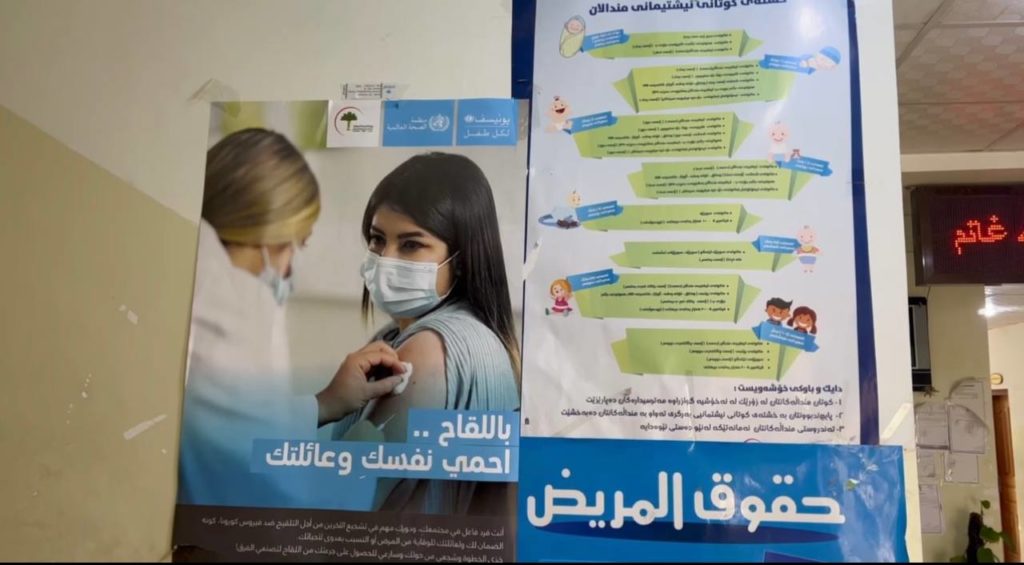
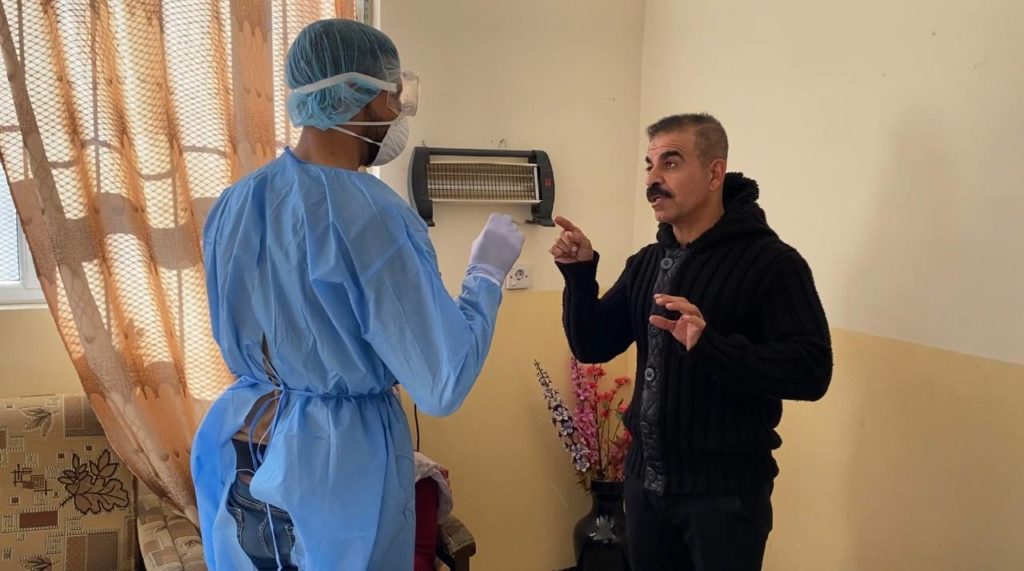
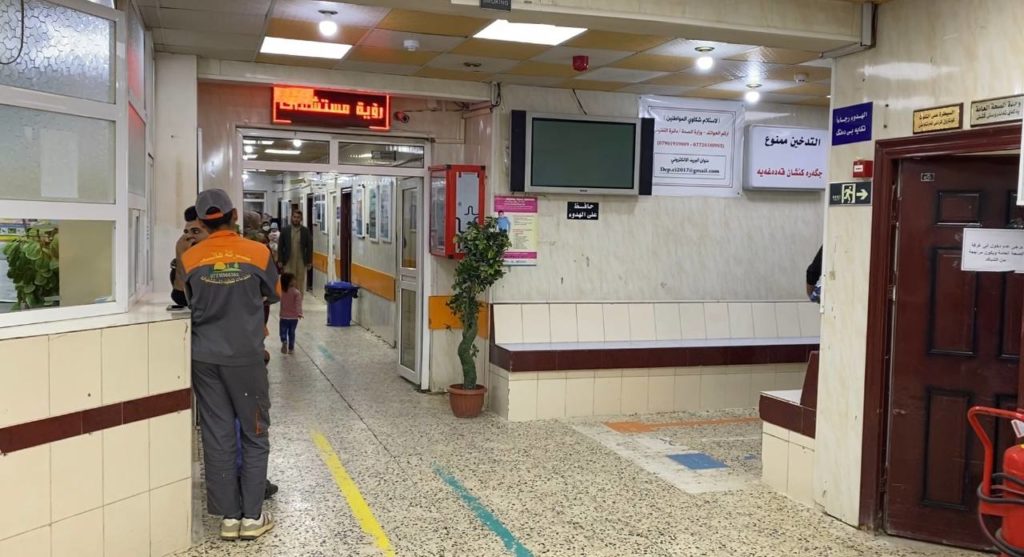
This article was originally published on KirkukNow. This article can be viewed in Arabic, Kurdish or Turkish via KirkukNow.

